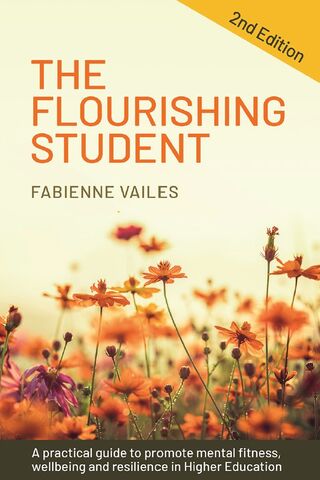Mental Health Is at the Center of Higher Education Reform
[ad_1]

Source: Fabienne Vailes / utilized with authorization
As a clinician whose caseload is mainly comprised of college college students, faculty, and workers, I really feel privileged to have my pulse on some of the latest traits in increased schooling. I was consequently intrigued to chat with educator and linguist Fabienne Vailes, who is on a quest to reform better schooling with a concentration on psychological health and fitness. In her new reserve, The Flourishing Scholar: A Practical Tutorial to Endorsing Psychological Well being, Effectively-becoming and Resilience in Higher Schooling, Vailes describes what she phone calls the Flourishing Model (FM) of instruction, which she hopes can provide as an inspiration to reform the schooling ecosystems that have been failing young children owing to their restricted aim on psychological health.
In her ebook, Vailes picks up the place Sir Ken Robinson leaves off in his TED Communicate on switching education and learning paradigms, which implicates the industrial-era assembly line product of education as it minimizes students’ personal needs. Ms. Vailes normally takes points a step further more by emphasizing the value of both equally mental overall health and student contributions to the curriculum of better education and learning. Vailes paraphrases Robert Kegan’s developmental design, suggesting that to face up to the kind of soreness that education requires, especially in greater schooling, one particular desires to experience psychologically risk-free. In an exertion to support students truly feel psychologically secure, Vailes hopes to inspire bigger instruction institutions to take into account, if not undertake, just one of the reform versions talked about in the e book.
Diverse versions of educational reform
The styles that Vailes explores all employ a devices approach, as outlined by methods theorist Peter Senge. This solution identifies students within their instructional techniques as holons—autonomous units within by themselves that are also sections of a larger sized full, like bouquets in a backyard or cells in the body—with every student staying allowed to co-generate the educational method of which they are a portion. One these model mentioned in The Flourishing Pupil is the University Mental Wellbeing Constitution. Formulated by Hughes and Spanner (2019), the Constitution delivers a established of evidence-knowledgeable ideas that assist a “whole college” approach to psychological wellbeing and well-staying.
The College of Gloucestershire (UoG) in the United Kingdom is on the slicing edge with regard to utilizing the College Psychological Wellness Constitution, as it was 1 of the first 41 universities to be section of the College Psychological Overall health Constitution System in 2021-22. Foremost the charge at the UoG are Vailes’s collaborators: Professor Jenny Hill, Head of Understanding and Training Innovation, and Anna Hay, Head of University student Effectively-Getting.
In accordance to Hill and Hay, the very long-expression objective of the UoG’s reform attempts is a three-year method in which a staff of students from varied demographic and tutorial backgrounds is included in a constant system of curriculum style, shipping and delivery, evaluation, and assist for understanding, with psychological nicely-getting at the core of every element.

The College of Gloucestershire: Prioritizing Psychological Wellness in Bigger Education Reform
Supply: Jongleur100/Wikimedia Commons
At UoG, these efforts are supported by assets and workshops with the aim of expanding students’ perception of belonging bolstering sources for university student psychological health and fitness guidance target education for personnel on psychological health and very well-currently being increasing access to physical health routines and the development of other abilities for transitioning out of university everyday living.
In addition to the University Psychological Well being Constitution, Vailes also discusses the Appreciative Inquiry (AI) product in her e book. Made by Dr. Michelle McQuaid and Dr. David Cooperrider, the AI model focuses on earning the recipients of reform stakeholders in the reformation process. In a recent podcast interview, Dr. Peggy Kern of the College of Melbourne’s Graduate School of Education claims that applying AI to better instruction reform requires faculty and team to determine “properly-remaining” for each and every school and then prioritize recruiting and coaching with this definition in brain. In addition, pupils are introduced into the method to give standard, qualitative feed-back about how they knowledge their finding out atmosphere all-around the topic of well-becoming.
Prioritizing mental wellbeing in larger education is some thing Vailes and I both equally keep expensive mainly because we every consider that when it arrives to the neurological, psychological, and social growth of youthful older people, 25 is the new 18. As these, the ages that most students go after their undergraduate and graduate reports lie just before they have arrived at full neurological and psychological maturation. Offered all of the adjustments and stressors connected with university daily life, this might be a key purpose why the median age of onset for psychotic diseases extends from the late teens through the early 20s (Kessler, et al., 2007). Consequently, we must choose heed of the tips that Vailes and her colleagues make in The Flourishing University student so that the upcoming of increased instruction can arise from a soil enriched with the psychological nicely-remaining of its stakeholders.
[ad_2]
Source hyperlink
